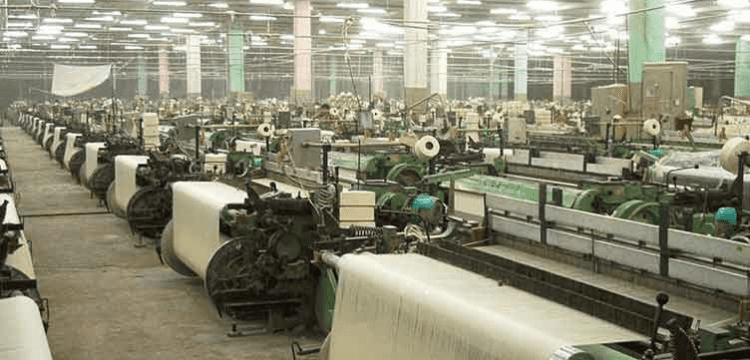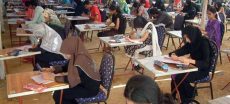[vc_row][vc_column][vc_column_text dp_text_size=”size-4″]KARACHI: According to The News on Tuesday, Pakistan’s textile exports fell for the fifth consecutive month in February, falling by 28% to $1.2 billion from the same month the previous fiscal year.
Data from the Pakistan Textile Mills Association (APTMA) painted a bleak image of textile exports, the largest contributor to the country’s entire export industry and the largest employer in the economy.
According to the APTMA, the country’s textile exports in the first eight months of the current fiscal year fell by 11% to $11.24 billion from $12.60 billion in the corresponding months of the previous fiscal year.
The decline in textile exports comes at a time when the country is already facing depleting foreign exchange reserves, which are just $3.81 billion, hardly sufficient for less than a month of imports.
Read More: Pakistan’s export will reach $100 billion one day, says Asif Zardari.
Last month, APTMA urged the federal government for a level playing field by implementing a uniform gas price of $7 per mmBtu for the export industry across the country.
It also warned that the decision of the government to suspend the regionally competitive energy tariff (RCET) of electricity for export-oriented units (EOUs) would hurt the textile industry, particularly in Punjab.
APTMA’s Secretary General Shahid Sattar in a letter to the government said that the textile industry has been asking for an electricity tariff of 9 cents despite the fact that the electricity cost, including transmission and distribution losses, stood at 8.1 cents per unit if cross-subsidies were excluded as per Central Power Purchasing Agency (CPPA) and National Electric Power Regulatory Authority (NEPRA) calculations.
The textile industry urges the government to convince the IMF to maintain RCET for exporters, especially the textile industry, as it was essential to keep the goods competitive on the global market.
According to Sattar, the textile industry increased from $12.5 billion in FY2020 to $19.5 billion in FY2022, thanks to $5 billion in investments made during the previous three years.
He emphasised that the government’s strong growth of 55% in exports in FY22 and investment of $5 billion would be wasted if it gives in to IMF pressure.[/vc_column_text][/vc_column][/vc_row]











